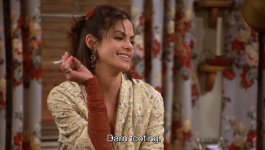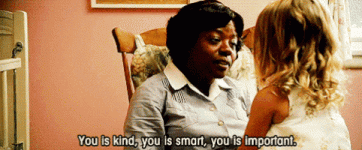lpetrich
Contributor
Continuing with The Nation's review,
The Nation's review then discussed her sort of celebrity.
Right-wingers have snickered about how AOC's class origin is more bourgeois than proletarian, to use Marxist terminology, and it is true that she didn't experience the lowest of the low. But then again, most revolutionaries are relatively bourgeois, including the American revolutionaries.There, Ocasio-Cortez excelled in school—she has described herself as a “dorky kid”—despite feeling out of place among her richer, whiter classmates. When Freedlander turns to her college years, he offers the most thorough account I’ve encountered, with some amusing and illuminating new details. At Boston University, “Sandy” performed cringey slam poetry, pushed David Foster Wallace on her friends, and started a blog; she studied abroad in Niger and, like other high achievers with altruistic instincts during the Obama years, got roped into a bunch of “social change through innovation”–type entrepreneurial bullshit.
This stuff—market-based philanthropy, “leveraged” nonprofits, microcredit—was everywhere when I was in college. Always vague in their pecuniary underpinnings, these projects were prized by administrators, who tended, by contrast, to ignore those of us who merely aspired to be “organizers.” (Not that we knew what that meant, either, but at least we knew we weren’t starting banks or pyramid schemes.) AOC, like many people I knew in school, soon burned out on this model of social change. She didn’t get a job out of it, and anyway, anarchists camping in the park seemed to be getting more done. As she wrote on her blog in a critique of “conscious consumerism” during her junior year at BU, “We’ve made a world where 10% proceeds sprinkle karma on our transactions…. Is social consciousness enough? What about social action?”
When she graduated, AOC could have become an analyst for some Wall Street firm, and from that, she could have led a very comfortable life, but she didn't.Rather, her trajectory resembles that of many highly educated millennials calling themselves socialists today, who experienced downward mobility and economic insecurity as they entered the workforce. Like them, AOC is ultimately a product of the failed promise of meritocracy in the United States.
...
“She had been a star in high school, a star in college, and a star as a graduate, who suddenly, through the vagaries of the modern economy, found herself serving overprivileged hipsters and overripe tourists.” Now she was paying for doctor’s visits in stacks of ones. For AOC’s generation, all it took was a single false step, an unforeseen misfortune or health crisis, to “fall through the cracks,” as she put it, and lose any sense of stability.
The Nation's review then discussed her sort of celebrity.
But to dismiss AOC’s tweets and Instagram stories as mere exercises in vanity or pandering is a mistake (one often buoyed by sexism). She has become what the scholar Paolo Gerbaudo calls a “hyperleader,” using digital platforms to form affective bonds with her base and beyond, which compensates for the failure of more traditional forms of political organization (e.g., parties, unions, and so on) to generate collective identities.




